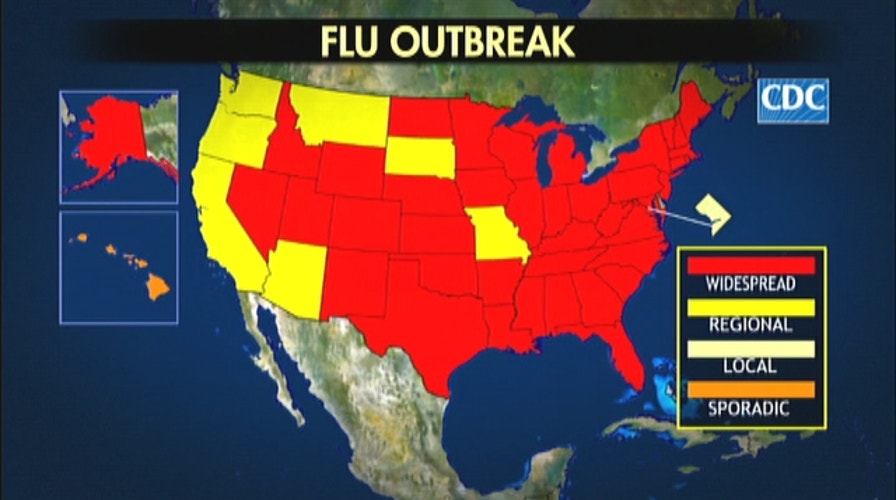Experts Warn of Strongest Flu in Decade
Experts warn this could be earliest and strongest flu season in a decade.
The nationwide flu outbreak has hit Boston hard as the state declares a public health emergency.
Wednesday the state announced that the outbreak has led the city to offer free flu vaccines along with setting up more places where people can get vaccinated. And for the city's Latino population, this is especially important as they tend to be more reluctant to get flu shots to begin with.
"The best thing you can do to protect yourself and your family is to get the flu shot," said Boston Mayor Thomas Menino.
According to the Centers for Disease Control and Prevention, in the last flu season only 39.1 percent of Latino adults received the shot, compared to 49.1 percent of non-Hispanic Whites.
Since the unofficial start of the flu season Oct. 1, four flu-related deaths,all elderly residents, have been reported in Boston with 18 deaths statewide.
The city is experiencing its worst flu season since at least 2009, Menino said, with about 700 confirmed cases of the flu, compared with 70 all of last season.
Massachusetts was just one of 29 states reporting high levels of "influenza-like illness," according to the most recent weekly flu advisory issued by the CDC.
The CDC said the proportion of people visiting health care providers with flu-like symptoms climbed from 2.8 percent to 5.6 percent in four weeks. By contrast, the rate peaked at only 2.2 percent during the relatively mild 2011-12 flu season.
The estimated rate of flu-related hospitalizations in the U.S. was 8.1 per 100,000 people, which is high for this time of year, according to Dr. Joe Bresee, chief of the epidemiology and prevention branch of the CDC's influenza division.
Barbara Ferrer, director of the Boston public health commission, said the emergency was declared in part to get residents' attention. She said that the 700 confirmed cases represent only those reported to the city and that thousands of other people may be ill.
[pull]
Boston hospitals had counted about 1,500 emergency room visits since December by people with flu-like symptoms. Menino said people with symptoms shouldn't go to work or school.
City, state and federal officials have all identified a Type A influenza known as H3N2 as the predominant strain reported so far this season. The strain, historically associated with more serious illnesses, is among those covered by the current vaccine.
"No vaccine is 100 percent effective," cautioned Kevin Cranston, head of the state bureau of infectious diseases. Some people, for example, might be vaccinated but get the flu in the 10 days to two weeks it takes for the immunity to take hold.
"There are any number of reasons why people could have done all the right things and still get the flu," he said.
High flu rates were being reported all over Massachusetts, Cranston said, and while he didn't have specifics on the 18 statewide deaths, he noted that the flu is most dangerous for the young, the elderly and people with other chronic health conditions.
The CDC said 18 children have died from the flu so far this season. While the CDC doesn't keep a tab of deaths overall from the flu, it estimates that 24,000 Americans die each year.
Based on reporting by The Associated Press.
Follow us on twitter.com/foxnewslatino
Like us at facebook.com/foxnewslatino

